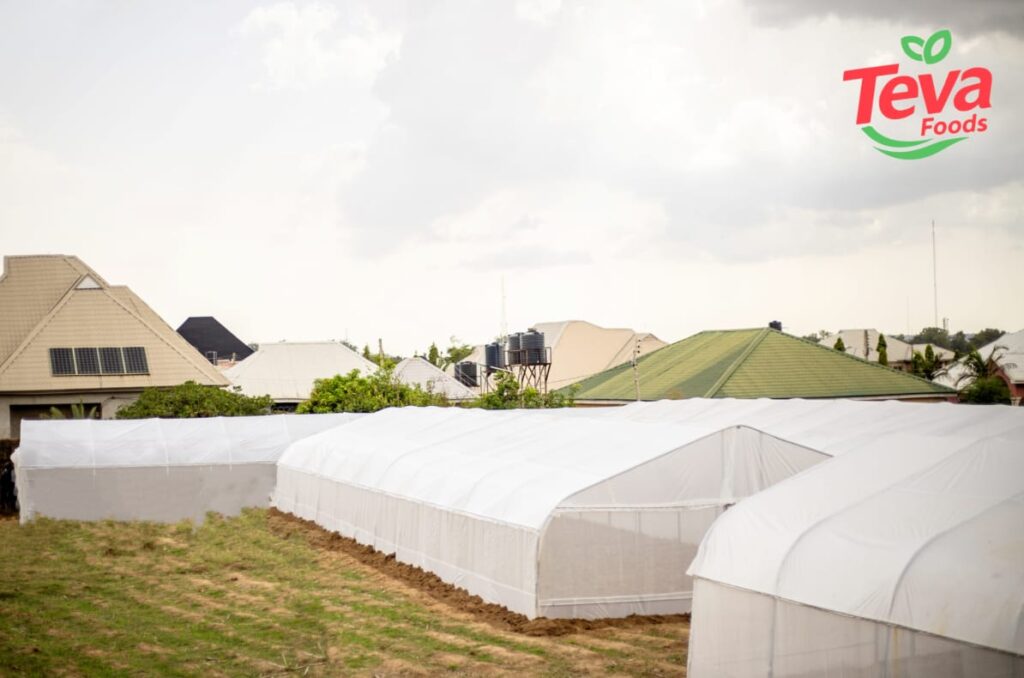Chinedum Elekwachi
Teva Foods and green economy stakeholders have called on Nigerian youths to embrace sustainable agriculture that merges smart technology with climate-resilient practices as a response to food insecurity, climate change, and unemployment.
Co-founder and Chief Executive Officer of Teva Foods, Chima Christian, made the call at the commissioning of the Teva Foods Jos-1 Greenhouse Farm Estate, held at the company’s facility in Rayfield, Jos, Plateau State.
He said the project was born out of concern over food insecurity and unemployment in Nigeria.
Christian noted that the greenhouse is to promote organic food production using climate-adaptive strategies and precision farming technologies.
He revealed that the Jos-1 Greenhouse Farm Estate is a 12,400 bellpepper plant capacity farm operation.
According to him, the Teva Foods has also partnered with Royal Mustard Agro Limited to cultivate over 17,000 tubers of yam and plantain crops in their joint operations in Anambra State.
“We were tired of just complaining about GMOs, inorganic foods, food inflation, and unemployment—so we decided to act.
Ethical agricultural practices
The CEO advocated ethical agricultural practices, cautioning against profit-driven genetic modification and food management systems, which he noted compromises consumer health.
He stated that Teva Foods aims to inspire a new generation of ethical agri-preneurs who will drive sustainable food systems in Africa.
His words: “As at today, a significant proportion of Nigeria’s food infrastructure is born by rural and mostly peasant farmers.
“Worse still, our farmers are mostly middle-aged to elderly people.

“No serious country with a growing population, leaves a huge chunk of its food infrastructure in the hands of that demography.
“We seek young Nigerians come into agriculture, and entirely own the space as in the entertainment and tech spaces.
“That is why various training, internship and outreach programmes to inspire the next generation of young smart farmers.”
He disclosed that the Teva Foods Jos-1 project provided temporary jobs for up to 15 workers daily for 40 days.
Besides, the company’s full-time staff have been retained for ongoing operations.
He added that the company’s growing distribution network will further generate indirect jobs for transporters and suppliers.
Climate adaptation strategy
Desmond Chollom, the CEO, Earthmosphere Nigeria is also the consultant to the project.
He described the greenhouse initiative as part of a broader climate adaptation strategy.
According to Chollom, it is aimed at enhancing food production across Plateau State and beyond.
He said climate change remains an existential threat to agriculture and urged governments at all levels to support youth-focused smart farming initiatives through training, infrastructure, and access to technology.
A participant in the Teva Foods Internship Programme, Mercy Chineke said the initiative had provided her with hands-on experience in smart farming and boosted her interest in organic food production.
“I’ve always been passionate about organic farming. This project gave me the practical exposure I needed, and I look forward to sharing what I’ve learned with others.
“I urge young people to embrace agriculture as a career path,” she said.





